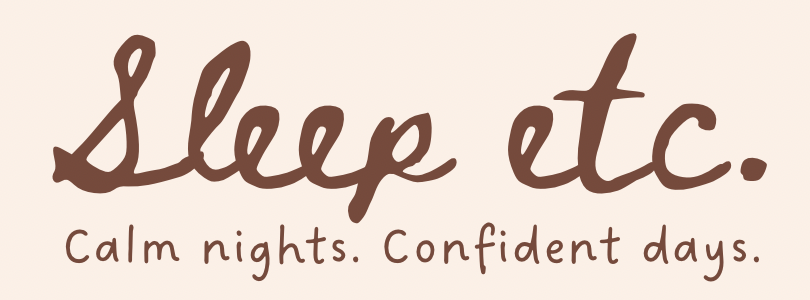October is ADHD Awareness Month
This year the global focus is on ‘The many faces of ADHD’, because let’s face it has and shows itself in so many different ways in different people.
Last year The South London & Maudsley NHS Trust published a helpful piece titled “ADHD Awareness Month: Six Key Things You Might Not Know”, which includes important insights relevant to families and individuals. It discusses the following:
1. Anxiety and ADHD commonly co-occur
Up to 30% of children and 40% of adults with ADHD also have an anxiety disorder.
Overlapping symptoms (restlessness, trouble concentrating, sleep disruption) can complicate diagnosis.
It's important to recognise both conditions because untreated anxiety can make ADHD symptoms more difficult to manange
For parents, noticing anxiety in your child or in yourself doesn’t mean it definatly is, or definitly is ADHD. It might mean both need attention.
2. Depression is another frequent companion
The article notes that as many as 70% of individuals with ADHD will experience depression at some point.
Depression can intensify symptoms like low motivation or irritability, making daily tasks harder.
Recognising depressive symptoms early is vital, as addressing both ADHD and mood can improve outcomes.
3. ADHD presents in different ways, not just hyperactivity
There are three presentations:
Inattentive (distracted, forgetful, disorganised)
Hyperactive/Impulsive (restlessness, interrupting, acting without thinking)
Combined (features of both)
The inattentive type is often under-recognised, especially in girls, because it may look like daydreaming or “being disorganised” rather than displaying disruptive behaviour.
4. Gender disparities in diagnosis
ADHD affects men and women at roughly equal rates, but diagnosis is skewed: men are more often diagnosed.
One reason: women are more likely to show inattentive symptoms, which are less overt and more easily dismissed.
Many adult women only come forward later in life when the challenges become more obvious (eg juggling work, family, daily responsibilities).
5. Strengths: creativity, divergent thinking, hyperfocus
You might be glad to know that the NHS article emphasises that ADHD is not only about difficulties, it can bring strengths too!
Traits like “thinking differently,” risk-taking, and rapid idea generation can be assets in creative, entrepreneurial, or flexible work settings.
Awareness helps people harness these strengths rather than being overwhelmed by the challenges.
6. Cognitive Behavioral Therapy (CBT) is an effective tool beyond medication
While medication is often part of ADHD care, the article highlights CBT as a valuable, evidence-based approach that helps with coping strategies, emotional regulation, and executive functioning.
For many adults, CBT can help fill gaps in skills around planning, organising, and managing emotions that they may not have developed earlier.
For children and teens, supportive behavioural strategies inspired by CBT can complement other interventions.
Sleep & ADHD: Why It Matters
Sleep problems and ADHD frequently interact in a vicious cycle:
Poor sleep can worsen attention, impulsivity, emotional regulation.
ADHD traits (hyperarousal, racing thoughts, internal restlessness) can make it harder to fall or stay asleep.
Coexisting anxiety or mood challenges amplify these issues.
Understanding how ADHD and sleep interplay gives families something actionable to work on together.
Within the theme of ‘The Many Faces of ADHD,’ awareness of how ADHD and sleep interplay is a powerful first step, but awareness alone isn’t always enough. That’s where I can help. At Sleep etc, I support families to create calmer, more predictable bedtime routines for babies, toddlers, and children. If you’re a parent feeling stuck in this cycle, or if you’re an adult struggling with your own wellbeing because of your own ADHD related sleep issues, you don’t have to do this alone.
Some practical suggestions:
Keep consistent sleep/wake times, even on weekends
Use a pre-bed buffer or wind-down ritual (quiet reading, gentle stretching, deep breathing)
Minimise screen exposure at least an hour before bedtime
Make the bedroom a sleep sanctuary cool, dark, and with low stimulation
If mind is racing, try journaling or “brain dump” prior to bed
When appropriate, discuss with clinicians about whether ADHD medication timing might affect sleep
If any of this feels overwhelming, I can work with you to put these steps into practice in a way that actually fits your family. Whether it’s through my infant sleep coaching, or a wellbeing ‘rescue call’ for parents who simply need to reset and breathe, my role is to guide you towards calmer nights and brighter days
References
South London and Maudsley NHS Foundation Trust (2023) ADHD Awareness Month: Six key things you might not know. Available at: https://slam.nhs.uk/blog/adhd-awareness-month-six-key-things-you-might-not-know-4137 (Last accessed: 28 September 2025).


